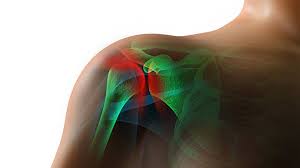Shoulder Injury Related to Vaccine Administration (“SIRVA”) is a recognized vaccine injury. SIRVA symptoms typically include pain at or around the site of vaccination, limited range of motion, and associated weakness. SIRVA can encompass a number of specific diagnoses, including rotator cuff tear, adhesive capsulitis, impingement syndrome of the shoulder, and bursitis. Understanding these conditions may help determine whether you have suffered SIRVA and may have a claim in the National Vaccine Injury Compensation Program.
Rotator cuff tears are among the more severe diagnoses associated with SIRVA. The bones of the upper arm, shoulder blade and clavicle all meet at the shoulder. The shoulder joint is supported by the rotator cuff, which is a group of muscles connected by four tendons. The tendons allow for rotation and weight bearing of the shoulder and arm. When there is a trauma or injury to one or more of these tendons, it can result in a partial or full tear of the tendon. A tear results in pain, inflammation, limited range of motion and weakness. The combination of symptoms can cause difficulty for the injured individual to complete many daily activities, such as grooming or getting dressed. As a result of the inflammation to or around the tendons, rotator cuff tears are commonly associated with bursitis.
MRI is most helpful in diagnosing a rotator cuff tear. Ultrasound and clinical examination are also useful tools in diagnosing this condition and assessing the level of impairment. X-rays may help to rule out other conditions that may cause or contribute to pain. Treatment for rotator cuff tears may include over the counter anti-inflammatory and pain medications, physical therapy, heat and ice therapy, steroid injections, and surgical intervention.
For more information about SIRVA, please see our information page. Please contact us here for a free consultation.
Source:
https://my.clevelandclinic.org/health/diseases/15359-frozen-shoulder

